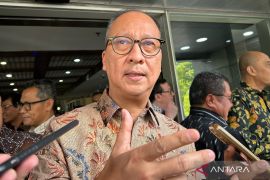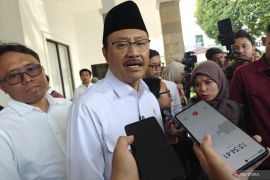The new rating came on April 4.
He said Indonesias economic resilience in the midst of economic volatility and global financial pressure was the basis for this rating.
"Indonesias economic resilience amidst global financial volatility and economic uncertainties has been recognized by the ranking agencies. The increasingly synergic combination of fiscal and monetary policies will make the economy healthier while efforts to usher in structural reforms are continuing," he said.
Bank Indonesia reported that R&I had affirmed Indonesias sovereign credit rating at BBB-level or stable outlook on March 18, 2015.
He said Indonesia was rated as investment grade because its economy remained stable despite external uncertainties.
The monetary policy that was applied was accommodative and was accompanied by a proactive fiscal policy to support economic growth.
The executive director of Bank Indonesias Communication Department, Tirta Segara, said Indonesias fiscal deficit was also considered low with fiscal flow condition being under control.
Foreign exchange liquidity has also been maintained through central bank policy and good foreign exchange reserves although non-bank private foreign debt must be monitored closely.
"R&I thinks Indonesias domestic economic slowdown in 2015 was caused by economic uncertainty and global finance problems," Tirta said.
In 2016, R&I saw Indonesias economy being boosted, with government spending acting as an economic mover and household consumption going up as a result of the central bank loosening its monetary policy.
R&I appreciated the governments commitment to bring in structural reforms including energy subsidy reforms as a positive development.
"The energy subsidy reform made room for the fiscal sector to be able to increase allocation of spendings linked to infrastructure supply and other productive sectors to make Indonesias economy grow higher," according to Bank Indonesia.(*)
Editor: Heru Purwanto
Copyright © ANTARA 2016











